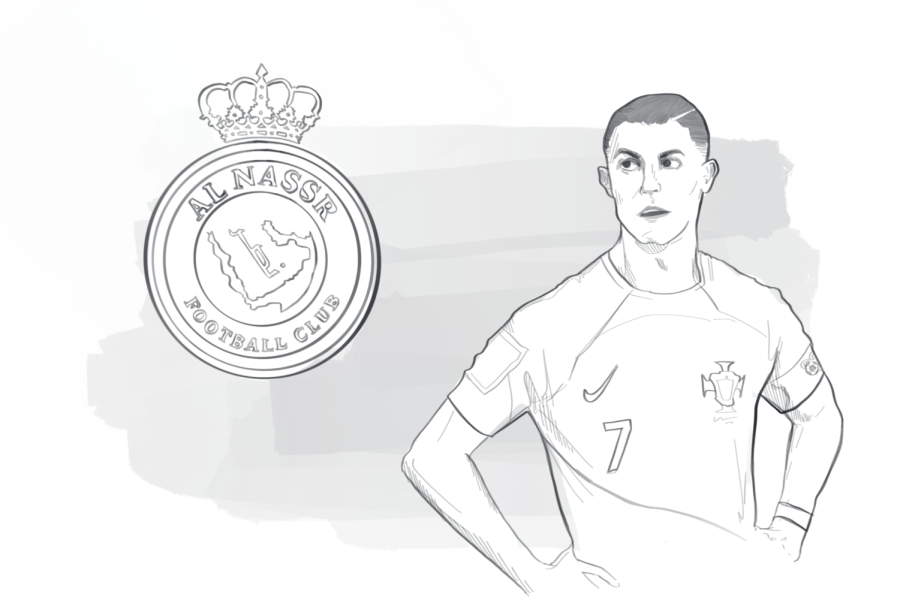Why Cristiano Ronaldo’s Move to Saudi Arabia is a Bad Move For Soccer
February 12, 2023
On December 30th, 2022, Saudi Arabian team Al-Nassr announced that they had signed soccer player Cristiano Ronaldo on a free transfer. It had been widely reported that Ronaldo was offered around $213 million a year for a two year contract. To put it in perspective, Ronaldo made $75 million a year at Manchester United. Ronaldo, being one of the biggest names in the sport, will give Al-Nassr and the Saudi Pro League a huge influx of sponsorships, TV broadcasting, and money. For example, the team’s Instagram following has increased from 853,000 to over 11 million. However, the ethics of giving a high profile player such a high wage have led to questions, from fans and analysts alike.
Over the last 10 years, the investment in soccer from Middle Eastern corporations and royalty have drastically increased. Previously average teams in their league have improved due to these investments. Specifically, Newcastle were at the bottom of the English Premier League, but now sit 3rd—just 9 points away from 1st place—after being bought by the Public Investment Fund, a Saudi-led consortium. The takeover and the exorbitant amounts of money the Public Investment Fund planned to invest into the team were widely criticized, due to the heavy links to the Saudi crown and their horrible human rights record. Since 2019, the value of the top 32 European men’s soccer teams has increased by almost 50%, and since oil-rich countries invest tons of money into their teams, they buy their way to success. UEFA, the head of European soccer, introduced FFP (Financial Fair Play) in 2009 to solve the issue. However, FFP has been used sporadically and to little effect. This sort of reckless spending will subsequently create an increasingly larger gap between traditionally successful and unsuccessful teams.
Oil rich nations, such as Qatar and Saudi Arabia, have started to welcome some global names to their leagues, where there are almost no rules on how much a team can spend. For example, Ronaldo’s move to Al-Nassr was clearly motivated by the amount of money that he can make. But, these leagues funded by a lot of money come at a high price. For example, the Chinese Super League tried a similar style, and attracted some huge names—such as Javier Mascherano, Marouane Fellaini, Stephan El-Shaarawy, and Oscar—and paid them huge amounts of money to play in a “lesser” league. In 2021, they imposed a salary cap to improve the standard of Chinese players, but this forced some teams to sell most of the players in their team just to stay in the league, with some even going out of existence.
With Cristiano Ronaldo’s contract at Al-Nassr being the largest ever, the future of global soccer is in jeopardy. If one team can now afford to pay one player such a huge salary, the teams that are fighting with them to win league titles and cup competitions will be blown out of the water. The competitive nature of these leagues will be drastically affected due to the gaps between giant enterprises and locally-owned teams. Players will want more money because they know they can get it, resulting in more teams going extinct. If FIFA does not act soon to stop these teams from spending so much money, the fabric of soccer will be forever altered.
This article also appears in our January 2023 print edition.











